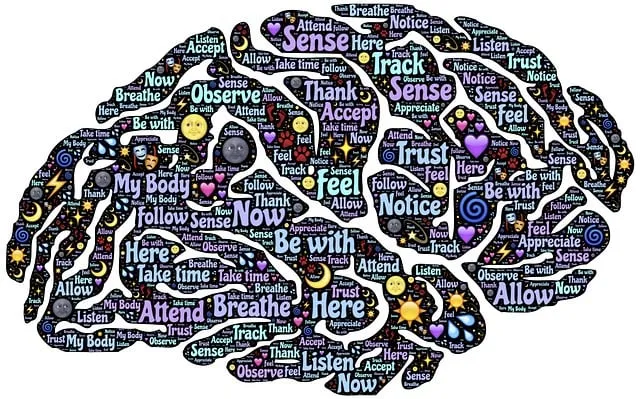The Englewood Kaiser Permanente Mental Health Access Center tackles the critical issue of limited mental wellness support in underserved communities by offering specialized, tailored care. Their structured coaching model incorporates evidence-based practices and diverse therapeutic techniques, adapted to various populations. Through regular evaluation, engagement tools like podcasts, and impactful programs, they enhance access, reduce stigma, and promote mental health awareness. This innovative approach, with data-driven adjustments, serves as a global model for effective mental wellness coaching.
In today’s fast-paced world, mental wellness coaching programs are becoming essential for promoting holistic well-being. This article explores the growing need for such initiatives, focusing on the innovative approach of the Englewood Kaiser Permanente Mental Health Access Center. We delve into the design of effective coaching models and curricula, highlighting strategies that have proven successful in enhancing mental health support. By examining the center’s programs, we offer valuable insights into improving access to care and fostering resilient individuals.
- Understanding the Need for Mental Wellness Coaching Programs
- Designing Effective Coaching Models and Curricula
- Implementing and Evaluating the Impact of Englewood Kaiser Permanente Mental Health Access Center's Programs
Understanding the Need for Mental Wellness Coaching Programs

In today’s fast-paced world, mental wellness is a fundamental aspect of overall health and well-being. However, many individuals struggle to access effective support for their mental health needs, especially in underserved communities. The Englewood Kaiser Permanente Mental Health Access Center highlights this gap by providing specialized care and resources tailored to diverse populations. By understanding the unique challenges faced by different demographics, the center offers targeted interventions that address not only symptoms but also underlying factors contributing to poor mental wellness.
The need for comprehensive mental wellness coaching programs is evident in the rising demand for accessible and affordable care. Stress Reduction Methods and Stress Management Workshops Organization play a crucial role in empowering individuals and communities. Moreover, Risk Management Planning for Mental Health Professionals ensures that those providing support have the tools to navigate complex situations safely and ethically. Such initiatives not only enhance the quality of care but also foster an environment where mental wellness is prioritized and nurtured.
Designing Effective Coaching Models and Curricula

When designing effective coaching models for mental wellness programs, such as those offered at the Englewood Kaiser Permanente Mental Health Access Center, a structured curriculum is essential. This includes clearly defining goals and objectives, aligning them with evidence-based practices, and incorporating various therapeutic techniques. A comprehensive model should address different aspects of mental health, including stress reduction methods, self-esteem improvement, and resilience building. The curriculum can be tailored to cater to diverse populations, ensuring accessibility and relevance for all participants.
Effective coaching models should also emphasize ongoing evaluation and adaptation. Regular assessments help track progress, identify areas of improvement, and adjust the approach accordingly. Incorporating feedback from both coaches and clients is vital to refining the program. Additionally, leveraging resources like the Mental Wellness Podcast Series Production can enhance engagement and provide supplementary learning materials. This multi-faceted approach ensures that coaching programs remain dynamic, relevant, and impactful in promoting mental wellness.
Implementing and Evaluating the Impact of Englewood Kaiser Permanente Mental Health Access Center's Programs

The Englewood Kaiser Permanente Mental Health Access Center has been at the forefront of transforming mental wellness coaching in its community. Their innovative programs aim to enhance access to mental health services, promote mental health awareness, and foster a supportive environment. One notable initiative focuses on resilience building through structured coaching sessions tailored to individual needs. These programs have shown significant promise in reducing the stigma associated with mental illness, encouraging open conversations, and empowering individuals to take charge of their well-being.
The center’s evaluation methods are comprehensive, tracking participant progress and feedback to ensure the effectiveness and adaptability of these interventions. By regularly assessing the impact of their programs, the access center can make data-driven adjustments, refining their approach to best support the unique mental health needs of the community they serve. This strategic implementation and evaluation process serves as a model for other healthcare providers, demonstrating the power of tailored coaching in improving mental wellness outcomes.
The development of mental wellness coaching programs, as demonstrated by the innovative models at the Englewood Kaiser Permanente Mental Health Access Center, is a vital step forward in addressing the growing need for accessible and effective mental health support. By integrating these programs into healthcare systems, we can foster better patient outcomes and overall well-being. The center’s success highlights the potential for coaching to revolutionize mental health care, making it more engaging and tailored to individual needs. With continued research and implementation, these programs have the power to become a cornerstone of comprehensive mental health services.






